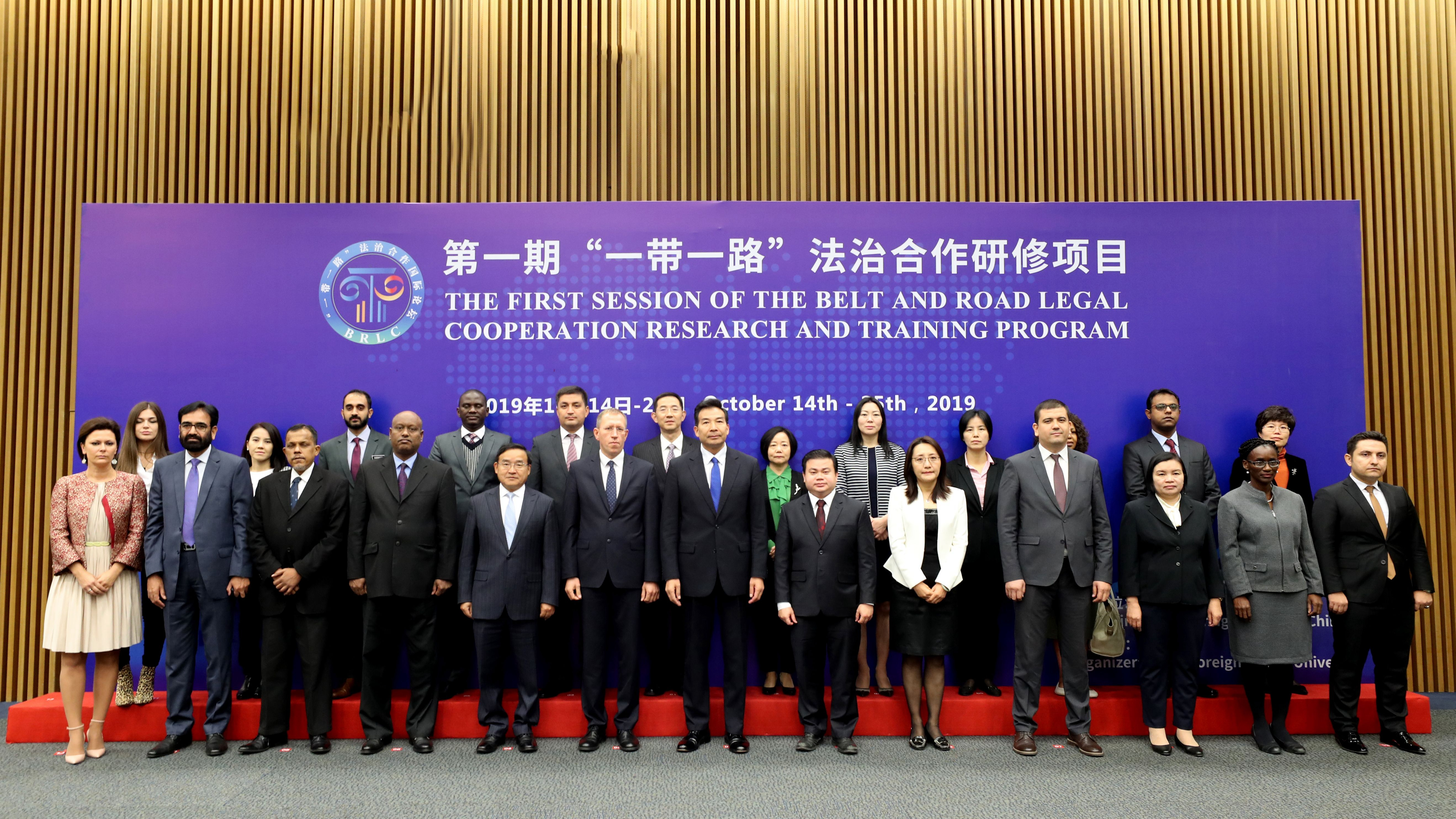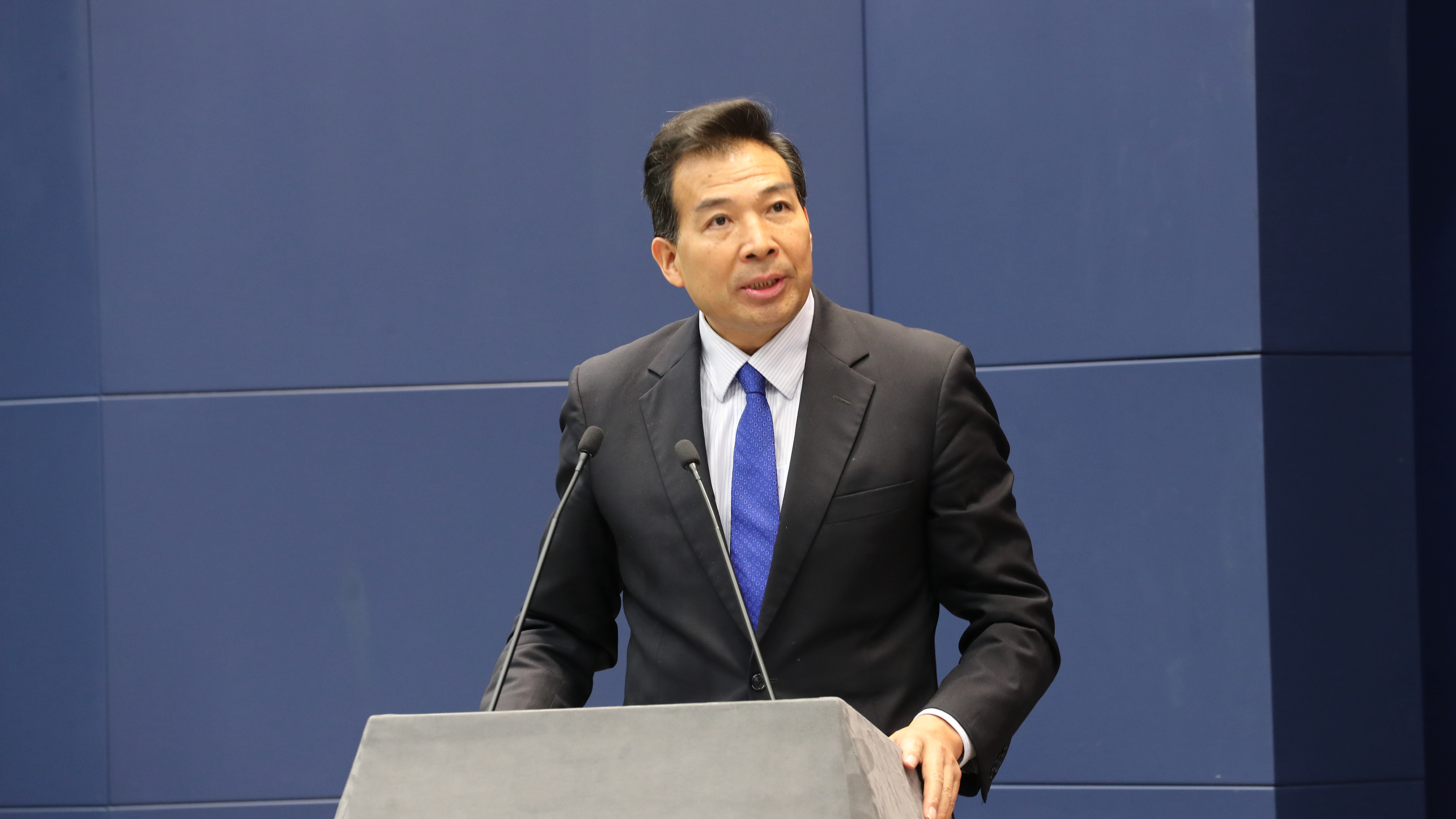01:24

Monday marks the opening ceremony for the First Session of the Belt and Road Legal Cooperation Research and Training Program. Ambassadors across the region and representatives from China Foreign Affairs University are among those in attendance.
As economic cooperation among Belt and Road regions grows closer than ever, legal work between them is becoming more important. However, rule-of-law traditions vary widely among them. Therefore, under the guidance of the Ministry of Foreign Affairs, China Foreign Affairs University has launched a research project to help create a new legal landscape in the region.
"All parties have unique views on the 'Belt and Road' rule of law cooperation and related issues of international law, and many countries have their own practices. We hope that we will exchange lessons and share good practices through the exchange of research projects to enhance mutual understanding and trust," said Chinese Vice Foreign Minister Luo Zhaohui.

Vice Foreign Minister Luo Zhaohui gives a speech. /CGTN Photo
Vice Foreign Minister Luo Zhaohui gives a speech. /CGTN Photo
An outcome of the Second Belt and Road Forum for International Cooperation held in April, the First Session of the Belt and Road Legal Cooperation Research and Training Program focuses on front-line issues in international law.
"We should give full play to the role of international law as the 'stability anchor' of international relations, promote the rule of law in international relations, replace conflict with cooperation, and strive to promote the development of international political and economic order in a more just and reasonable direction," said Luo.
Officials also say that participants of the project will learn the history of Chinese culture and understand why China will not become aggressive toward other countries from a historical perspective.